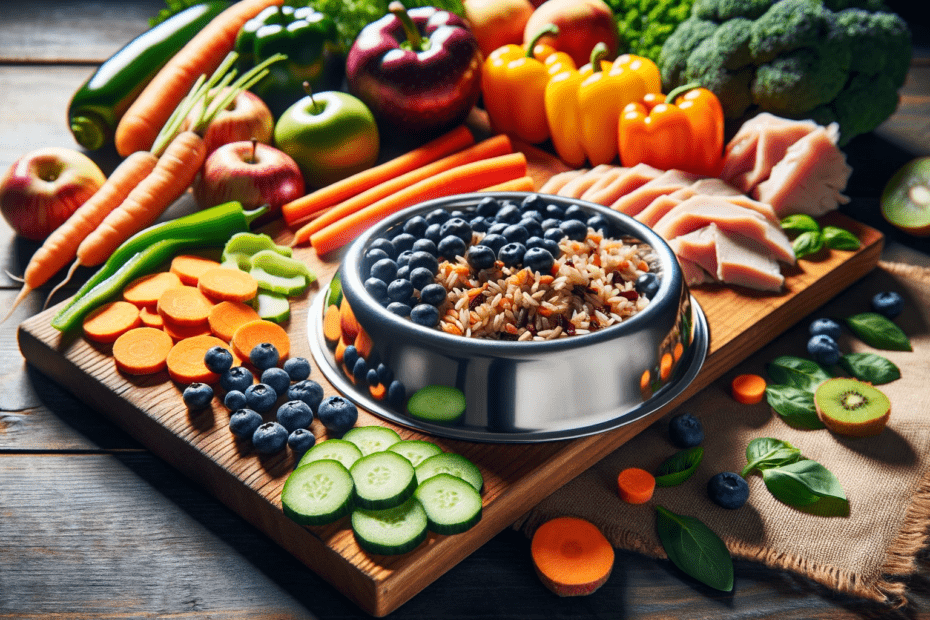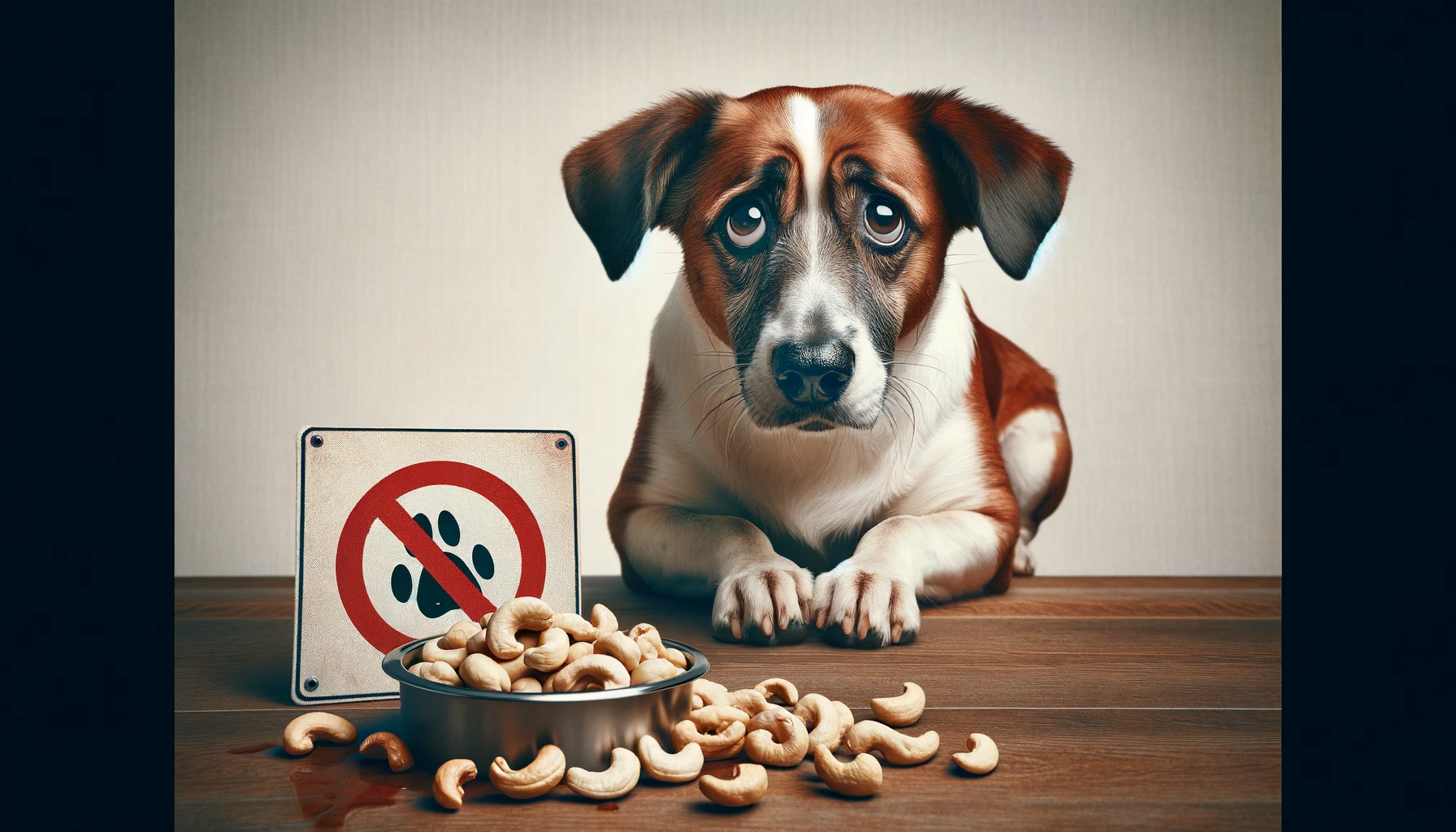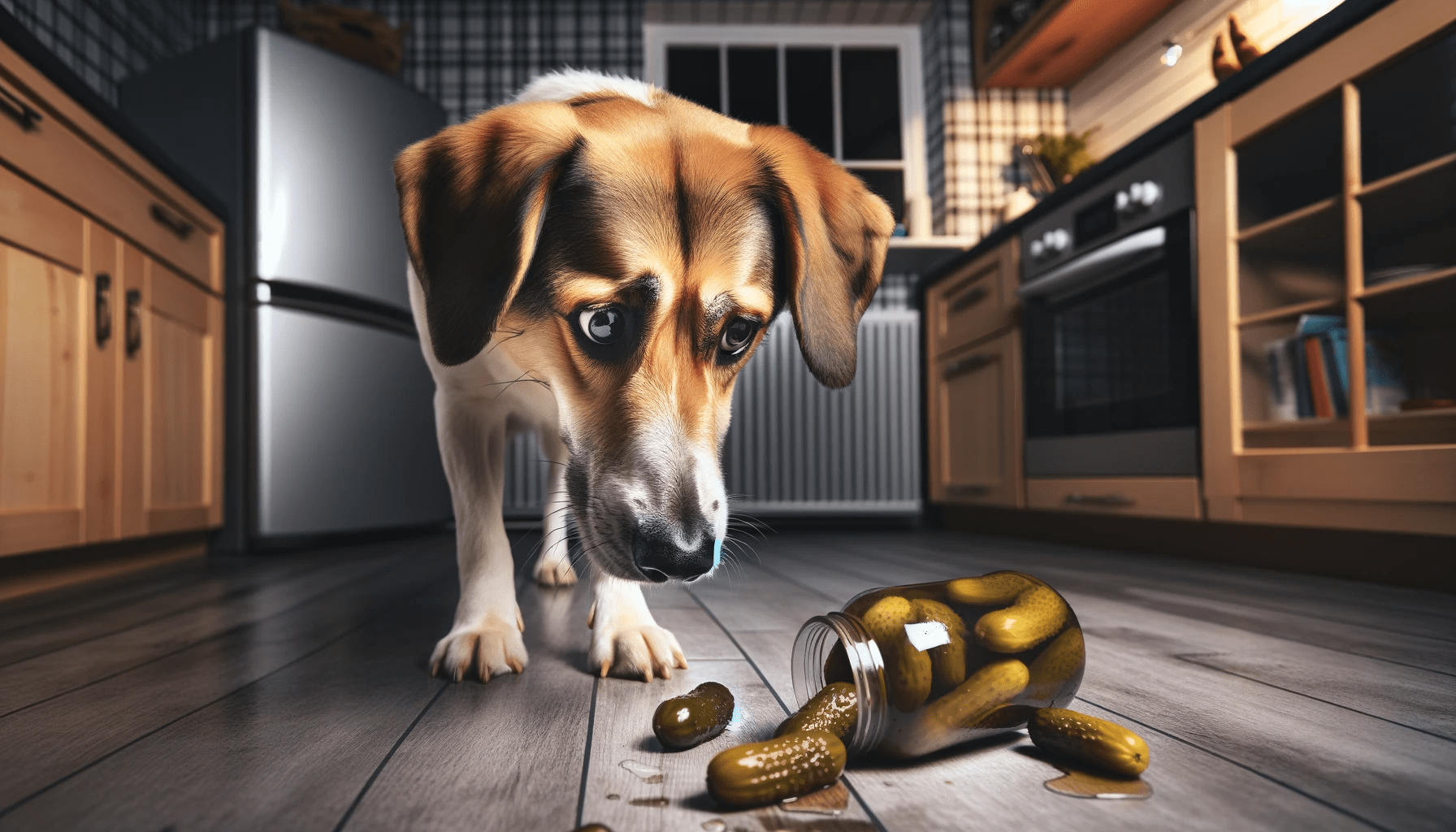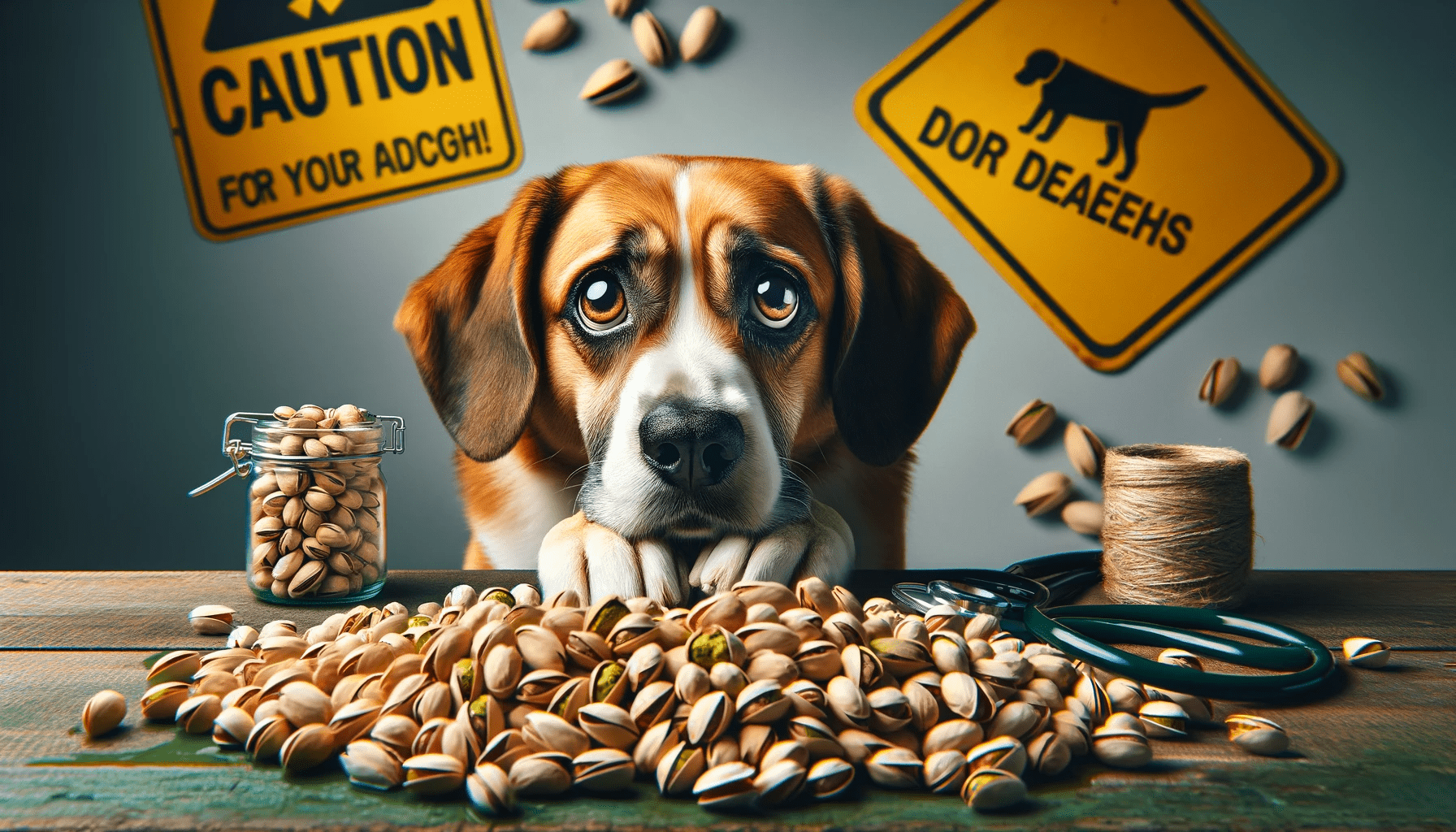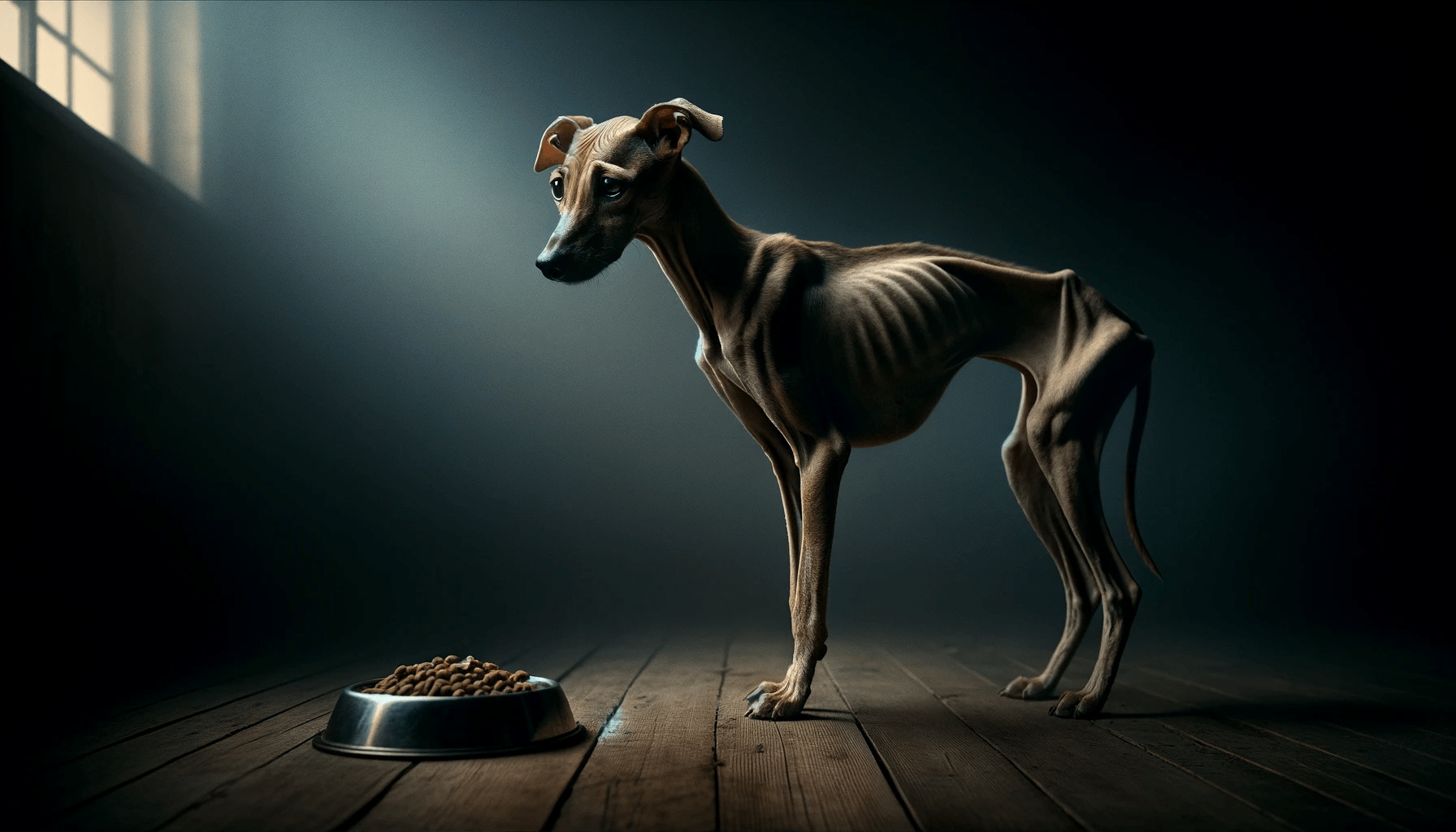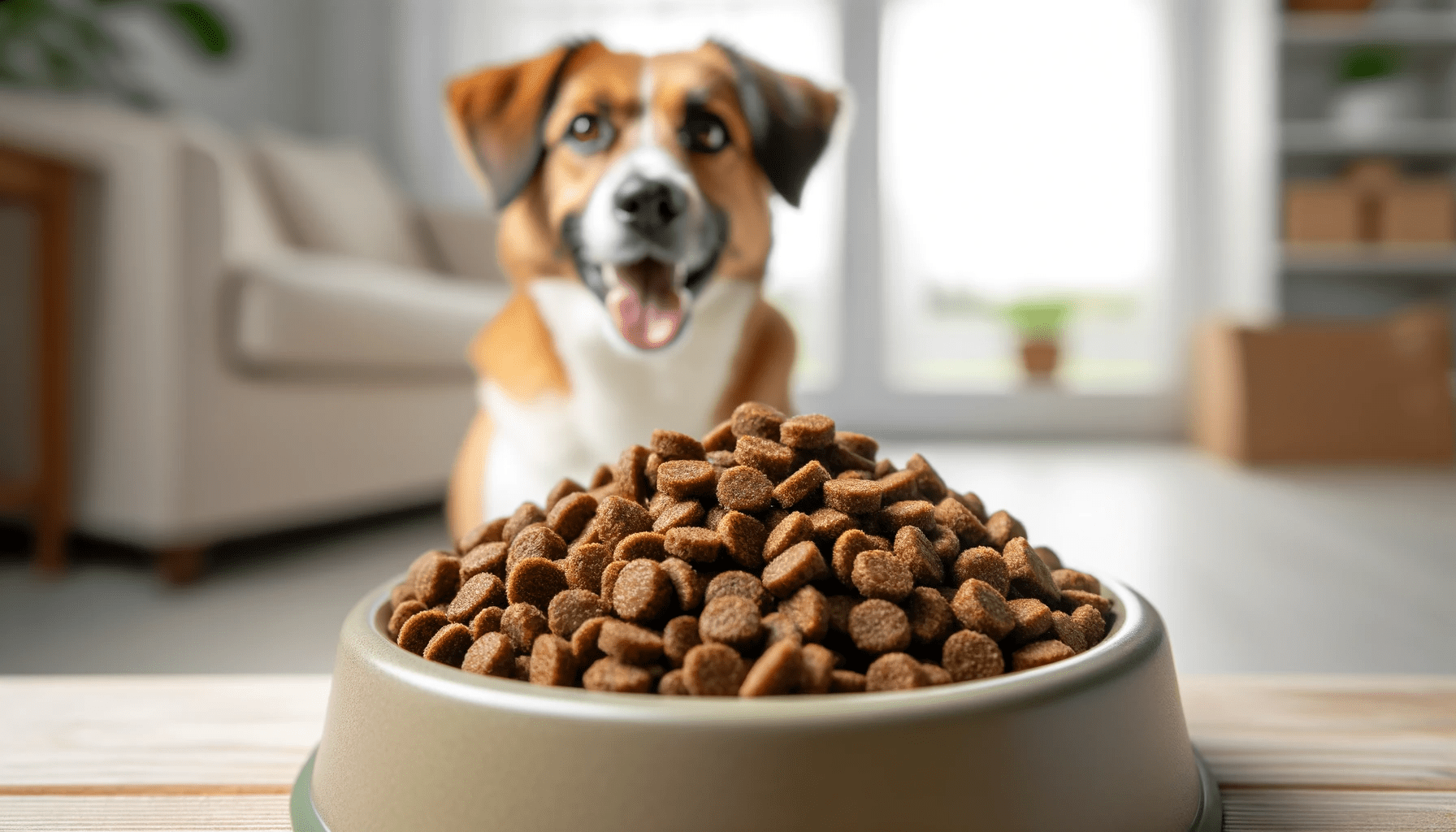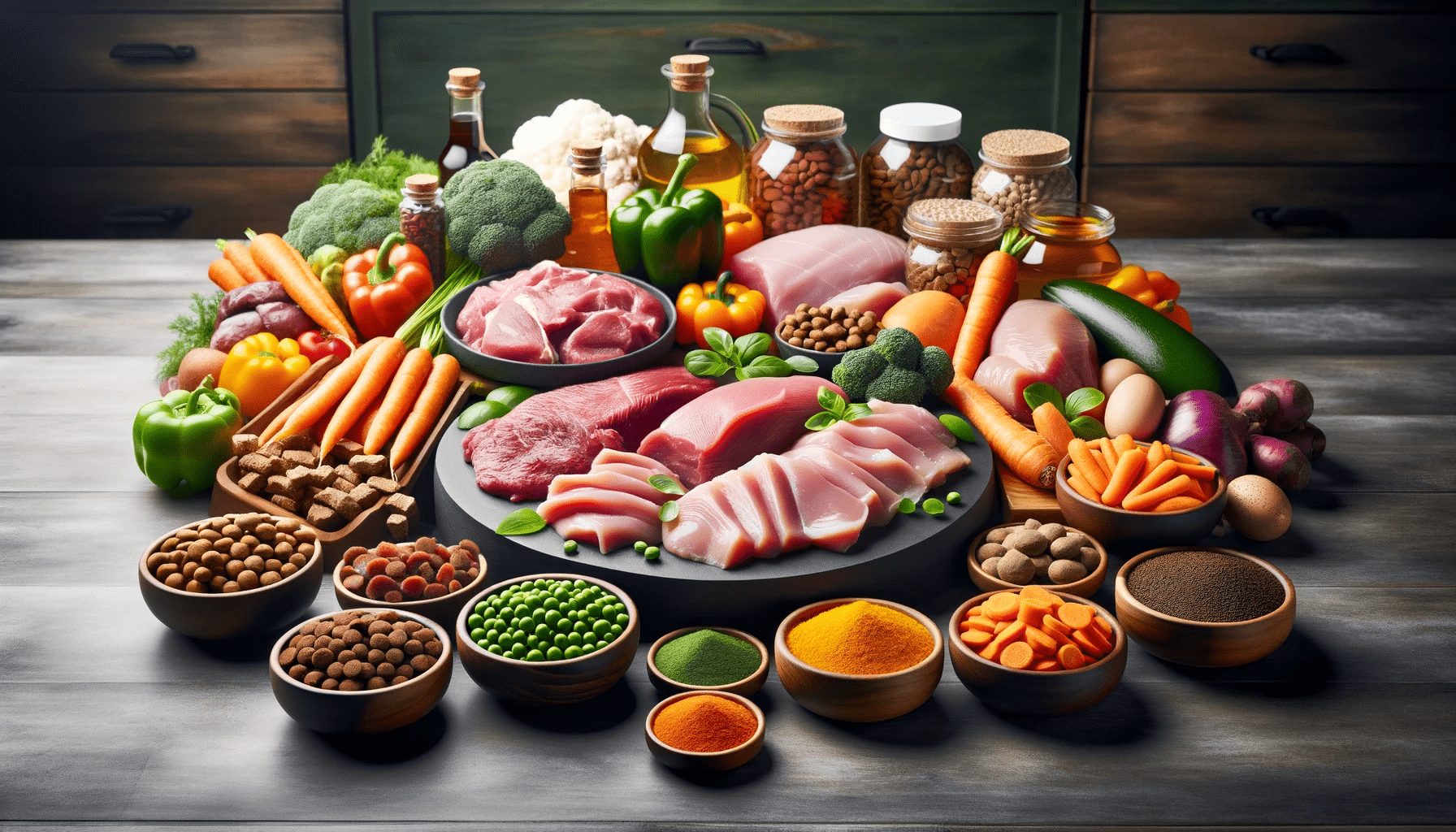Looking to improve your dog's nutrition? Look no further! In this article, we will provide you with 14 natural tips to enhance your furry friend's diet.
By switching to high-quality dog food, incorporating lean proteins and a variety of veggies, and limiting processed ingredients, you can ensure that your dog receives the nutrients they need.
Plus, we'll share advice on portion control, exercise, and consulting with a veterinarian for personalized guidance.
Let's get started on improving your dog's nutrition today!
Key Takeaways
- Choose a dog food with lean protein sources and a variety of vegetables, while avoiding artificial additives and common allergens.
- Incorporate lean protein sources like chicken, turkey, and fish into your dog's diet, ensuring they are cooked thoroughly.
- Include a variety of vegetables like carrots, broccoli, spinach, peas, and sweet potatoes for essential nutrients.
- Add healthy fats, such as omega-3 fatty acids, in moderation to support brain development, joint health, and a healthy coat and skin.
Switch to a High-Quality Dog Food
Start by switching to a high-quality dog food that provides all the essential nutrients your furry friend needs. A balanced diet is crucial for your dog's overall health and well-being. Look for a dog food that contains lean protein sources, such as chicken, turkey, or fish. These protein sources are important for muscle development and maintenance. Additionally, a variety of vegetables should be included in the dog food to provide important vitamins, minerals, and fiber. Vegetables like carrots, sweet potatoes, and peas are excellent choices.
When selecting a high-quality dog food, make sure to read the label carefully. Look for ingredients that are easily recognizable and avoid foods with artificial additives or fillers. A high-quality dog food should also be free from common allergens such as wheat, soy, and corn. These ingredients can potentially cause digestive issues or allergies in some dogs.
Switching to a high-quality dog food may require some trial and error to find the perfect fit for your furry friend. Monitor your dog's response to the new food, including their energy levels, coat condition, and overall digestion. If you notice any adverse reactions, consult with your veterinarian for further guidance.
Incorporate Lean Protein Sources
To ensure your dog receives the necessary nutrients, incorporate a variety of lean protein sources into their diet. Lean protein is essential for your dog's overall health and well-being. It provides the building blocks for strong muscles, supports a healthy immune system, and helps maintain a shiny coat.
Here are some homemade dog food options that are rich in lean protein:
- Chicken: Skinless, boneless chicken breast is a great source of lean protein for your dog. It's low in fat and high in essential amino acids.
- Turkey: Ground turkey is another excellent option. It's lean and easily digestible, making it suitable for dogs with sensitive stomachs.
- Fish: Incorporating fish into your dog's diet can provide them with omega-3 fatty acids, which promote a healthy coat and skin. Opt for salmon or sardines, as they're low in mercury and high in protein.
Remember to cook the protein sources thoroughly before feeding them to your dog. It's also important to consult with your veterinarian to ensure that your dog's homemade diet meets their specific nutritional needs.
Include a Variety of Vegetables
Incorporate a variety of vegetables to enhance your dog's nutrition and support their overall health. Including a range of vegetables in your dog's diet can provide numerous benefits. Vegetables are rich in essential vitamins, minerals, and antioxidants that are vital for your dog's well-being. They can contribute to a healthy immune system, promote optimal digestion, and help maintain a healthy weight.
When it comes to choosing vegetables for your dog, homemade meals offer more flexibility and control compared to commercial dog food. You have the freedom to select a wide variety of vegetables that are safe and suitable for your dog's specific needs. Some great options include carrots, broccoli, spinach, peas, and sweet potatoes. These vegetables provide different nutrients and textures, adding diversity to your dog's diet.
By incorporating a variety of vegetables into your dog's meals, you can ensure they receive a well-rounded nutritional profile. This can help prevent nutrient deficiencies and support their overall health. However, it's important to remember that not all vegetables are safe for dogs. Avoid feeding them onions, garlic, or anything from the nightshade family, such as tomatoes and potatoes.
Include Healthy Fats in Their Diet
To further bolster your dog's nutrition, regularly include healthy fats in their diet. Healthy fats, such as omega-3 fatty acids, offer numerous benefits for your furry friend. Here are three reasons why incorporating healthy fats into their meals is essential:
- Benefits of Omega-3s:
- Omega-3 fatty acids are vital for your dog's overall health and well-being. They support brain development, improve cognitive function, and enhance joint health.
- These fatty acids have anti-inflammatory properties that can help alleviate symptoms of allergies, arthritis, and other inflammatory conditions.
- Omega-3s also promote a healthy coat and skin, reducing itchiness and dryness, and giving your dog a shiny, lustrous appearance.
- Importance of Portion Control:
- While healthy fats are beneficial, it's crucial to maintain proper portion control. Too much fat can lead to weight gain and related health issues.
- Consult with your veterinarian to determine the appropriate amount of healthy fats to include in your dog's diet based on their age, size, and activity level.
- Remember that moderation is key. By including healthy fats in the right proportions, you can ensure your dog receives the benefits without the potential drawbacks.
Incorporating healthy fats, like omega-3s, into your dog's diet is a simple and effective way to enhance their nutrition. Just remember to prioritize portion control to maintain a balanced diet for your furry companion.
Limit Processed and Artificial Ingredients
To ensure optimal nutrition for your dog, it's important to limit their intake of processed and artificial ingredients. Fresh, whole foods provide a more natural and wholesome source of nutrients compared to processed options.
Processed and artificial ingredients often contain additives, preservatives, and fillers that can be harmful to your dog's health. By choosing natural ingredients, you can provide your dog with a diet that promotes their overall well-being.
Fresh Vs. Processed
Your dog's nutrition can greatly improve by limiting processed and artificial ingredients in their diet. Choosing fresh food over processed options is beneficial for several reasons:
- Nutritional Value: Fresh food retains more nutrients and natural enzymes compared to processed food, which often undergoes high-temperature cooking and extensive processing, leading to nutrient loss.
- Digestive Health: Fresh food is easier to digest, as it contains fewer additives and preservatives that can irritate your dog's digestive system.
- Quality Ingredients: By opting for fresh food, you have control over the ingredients your dog consumes, ensuring they receive high-quality, whole foods without artificial additives or fillers.
On the other hand, processed food can have drawbacks:
- Lower Nutritional Value: Processed food may contain lower amounts of essential nutrients due to the manufacturing process.
- Artificial Additives: Processed food often contains artificial preservatives, colors, and flavors, which can be harmful to your dog's health.
- Digestive Issues: Some dogs may experience gastrointestinal issues or allergies due to the artificial ingredients present in processed food.
Artificial Additives: Dangers
By limiting processed and artificial ingredients in your dog's diet, you can protect them from the dangers of artificial additives. Artificial additives are commonly found in commercial dog food and can have negative impacts on your dog's health. These additives are used to enhance flavor, improve texture, and prolong shelf life.
However, they may pose potential risks to your dog's well-being. Many artificial additives have been linked to allergies, digestive issues, and even cancer in dogs.
On the other hand, opting for organic ingredients in your dog's diet can provide various benefits. Organic ingredients are free from synthetic pesticides, hormones, and antibiotics, which makes them a healthier choice for your furry friend.
Benefits of Natural Ingredients?
When choosing natural ingredients for your dog's nutrition, it's important to limit processed and artificial additives in their diet. Opting for natural ingredients over processed and artificial ones comes with several benefits for your furry friend.
Here are some pros and cons of artificial versus natural ingredients, along with the benefits of a balanced diet:
- Artificial vs. Natural: Pros and Cons
- Artificial additives often provide flavor and color but lack essential nutrients.
- Natural ingredients are rich in vitamins, minerals, and antioxidants.
- Artificial additives may increase the risk of allergies and digestive issues.
- Benefits of a Balanced Diet
- Natural ingredients promote overall health and well-being.
- Balanced diets support a strong immune system.
- Natural ingredients can enhance coat health and shine.
Avoid Foods That Are Toxic to Dogs
One important step in improving your dog's nutrition is to avoid feeding them foods that are toxic. There are several common foods that can be harmful or even fatal to dogs if ingested. It's crucial to be aware of these toxic food dangers and take precautions to keep them out of your dog's reach.
Chocolate is one of the most well-known toxic foods for dogs. It contains theobromine, which dogs can't metabolize as efficiently as humans. Even small amounts of chocolate can cause symptoms such as vomiting, diarrhea, and increased heart rate. Other foods to avoid include grapes and raisins, which can cause kidney failure, and onions and garlic, which can damage a dog's red blood cells.
In addition to avoiding toxic foods, it's also important to consider the placement of your dog's water bowl. Dogs should have access to fresh, clean water at all times. However, placing their water bowl near their food bowl can lead to contamination. Dogs have a natural instinct to separate their food and water sources. By keeping their water bowl in a separate location, you can help prevent the spread of bacteria and keep your dog healthy.
Provide Regular Access to Fresh Water
To ensure optimal health for your dog, it's crucial to provide regular access to fresh water.
Hydration plays a vital role in various bodily functions, including digestion, circulation, and temperature regulation.
Place water bowls in easily accessible locations throughout your home and make sure to change the water frequently to maintain cleanliness and freshness.
Hydration for Optimal Health
Make sure your dog has constant access to fresh water for optimal hydration and health. Hydration plays a vital role in your dog's overall well-being, so it's important to prioritize water intake.
Here are some practical tips to ensure your dog stays hydrated:
- Water bowl cleanliness: Regularly clean your dog's water bowl to prevent the growth of bacteria and algae. Wash it with mild soap and water, and rinse thoroughly to remove any residue.
- Homemade hydration options: Consider adding some variety to your dog's hydration routine by offering them homemade hydration options. You can make ice cubes using low-sodium chicken broth or freeze small amounts of watermelon or cucumber for a refreshing treat.
- Monitor water intake: Keep an eye on your dog's water intake, especially during hot weather or after vigorous exercise. If you notice a significant decrease in their water consumption, it may indicate an underlying health issue, and you should consult your veterinarian.
Water Bowl Placement
Ensure that your dog always has easy access to fresh water by strategically placing their water bowl in a convenient and easily accessible location. It's important to consider the cleanliness of the water bowl to prevent the growth of harmful bacteria.
Regularly clean the bowl with mild soap and water, and rinse thoroughly to remove any residue. Additionally, choose water bowl materials that are safe for your dog. Stainless steel bowls are recommended as they're sturdy, easy to clean, and resistant to bacteria buildup. Avoid plastic bowls as they can harbor bacteria and may cause allergic reactions in some dogs. Ceramic bowls are another option, but make sure they're lead-free.
Importance of Clean Water
Regular access to clean water is essential for maintaining your dog's hydration and overall health. Water quality plays a crucial role in ensuring that your furry friend receives the necessary hydration benefits. Here are some important points to consider:
- Filtered water: Providing your dog with filtered water helps to remove impurities and contaminants, ensuring a clean and safe drinking source.
- Fresh water: Always make sure to refill your dog's water bowl with fresh water daily. Stagnant water can harbor bacteria and become unappetizing for your canine companion.
- Temperature: Dogs prefer drinking room temperature water. Cold water can cause discomfort, while hot water may lead to burns. Offering water at the right temperature encourages your dog to stay properly hydrated.
Consider Homemade Dog Food Options
To provide optimal nutrition for your dog, try incorporating homemade dog food options into their diet.
Homemade dog food has several benefits over commercial dog food. Firstly, you have complete control over the ingredients, ensuring that your dog receives a balanced and nutritious meal. You can choose high-quality protein sources such as lean meats, fish, and eggs, which are essential for your dog's muscle development and overall health. Additionally, you can include a variety of vegetables and fruits to provide essential vitamins, minerals, and antioxidants.
Homemade dog food also gives you the flexibility to tailor the portion sizes to your dog's individual needs, helping to maintain a healthy weight.
On the other hand, commercial dog food may come with certain risks. Many commercial dog food brands contain fillers, preservatives, and artificial additives that can be detrimental to your dog's health. Some dogs may also develop allergies or sensitivities to certain ingredients commonly found in commercial dog food. By making your own dog food, you can avoid these potential risks and provide your dog with a more natural and wholesome diet.
When considering homemade dog food options, it's important to consult with your veterinarian to ensure that you're meeting your dog's specific nutritional requirements. They can provide guidance on the appropriate balance of proteins, carbohydrates, and fats to include in your homemade dog food recipes.
Supplement With Natural Vitamins and Minerals
To enhance your dog's nutrition, consider supplementing their diet with natural vitamins and minerals. Natural supplements can provide an extra boost of essential nutrients that may be lacking in your dog's regular diet. Here are some homemade alternatives to consider:
- Omega-3 Fatty Acids: These healthy fats are essential for your dog's overall health and can be found in fish oil or flaxseed oil. Omega-3 fatty acids help support a healthy coat, reduce inflammation, and promote brain health.
- Probiotics: Just like humans, dogs can benefit from a healthy gut. Probiotics, such as yogurt or kefir, contain beneficial bacteria that can improve digestion and strengthen the immune system.
- Vitamin E: This powerful antioxidant helps protect your dog's cells from damage and supports a healthy immune system. Natural sources of vitamin E include sunflower seeds, almonds, and spinach.
Introduce Probiotics for Gut Health
Consider adding probiotics to your dog's diet for improved gut health. Probiotics are beneficial bacteria that can help balance the digestive system and support overall well-being. They can be especially useful if your dog experiences digestive issues, such as diarrhea or constipation. Probiotics work by promoting the growth of healthy bacteria in the gut, which can enhance nutrient absorption and strengthen the immune system.
When choosing probiotics for your dog, opt for those specifically formulated for dogs. Look for products that contain a variety of strains, such as Lactobacillus acidophilus and Bifidobacterium animalis, as they offer different benefits. Additionally, consider using homemade dog food options that naturally contain probiotics, such as yogurt or fermented vegetables. These foods can provide your dog with a more diverse range of probiotics and other nutrients.
To introduce probiotics into your dog's diet, start with a small amount and gradually increase the dosage over time. It's important to consult with your veterinarian before making any changes to your dog's diet, especially if they've any underlying health conditions. Your vet can provide guidance on the appropriate dosage and help you choose the right probiotic supplement or homemade dog food option for your furry friend.
Offer Occasional Raw Food Meals
Include raw food meals in your dog's diet occasionally to provide them with the benefits of natural, unprocessed nutrition. Raw food diets have gained popularity among dog owners, as they believe that it mimics what dogs would eat in the wild.
Here are some reasons why offering occasional raw food meals can be beneficial for your furry friend:
- Improved Digestion: Raw food contains natural enzymes that aid in digestion, leading to better nutrient absorption and reduced gastrointestinal issues.
- Dental Health: Chewing on raw meaty bones helps clean your dog's teeth and gums, reducing the risk of dental problems such as tartar buildup and gum disease.
- Enhanced Energy and Coat: Raw food is rich in essential fatty acids, which promote a healthy coat and skin. Additionally, it provides dogs with the energy they need to stay active and playful.
When preparing raw food meals for your dog, it's important to follow proper food handling and safety guidelines. Ensure that the ingredients are fresh, sourced from reliable suppliers, and balanced to meet your dog's nutritional needs. It's also recommended to consult with a veterinarian or a canine nutritionist to ensure that your dog's homemade meals are well-balanced and suitable for their specific requirements.
Control Portion Sizes and Feeding Schedule
To ensure optimal nutrition for your dog, it's important to control their portion sizes and establish a consistent feeding schedule. Portion control plays a crucial role in maintaining a healthy weight for your furry friend. Overfeeding can lead to obesity, which can result in various health issues such as diabetes, joint problems, and heart disease. On the other hand, underfeeding can lead to nutrient deficiencies, lack of energy, and poor overall health. By controlling portion sizes, you can ensure that your dog receives the right amount of nutrients without excess calories.
Feeding schedules are also essential for your dog's well-being. Dogs thrive on routine, and having a consistent feeding schedule helps them regulate their digestion and metabolism. It's recommended to feed adult dogs twice a day, ideally at the same time each day. Puppies, on the other hand, require more frequent meals. Consult with your veterinarian to determine the appropriate feeding schedule for your specific dog based on their age, breed, and activity level.
When establishing a feeding schedule, make sure to allocate enough time for your dog to eat without rushing or feeling stressed. Additionally, avoid free-feeding or leaving food out all day, as it can disrupt their eating habits and lead to overeating. Remember to provide fresh water at all times and monitor your dog's weight and body condition regularly to adjust portion sizes accordingly.
Prioritize Regular Exercise for Weight Management
Make exercise a priority to manage your dog's weight effectively. Regular physical activity is essential for maintaining your dog's overall health and weight. Here are some tips to help you incorporate exercise into your dog's daily routine:
- Schedule regular walks: Take your dog for at least two walks a day. This won't only help burn calories but also provide mental stimulation and socialization opportunities.
- Engage in interactive play: Play games like fetch or tug-of-war with your dog. This will keep them active and entertained.
- Consider dog sports: Enroll your dog in agility or obedience classes. These activities provide both physical exercise and mental stimulation.
Regular exercise not only helps with weight management but also has other benefits for your dog's health. It improves cardiovascular fitness, strengthens muscles and bones, and enhances overall endurance. Additionally, it helps prevent obesity-related health problems such as diabetes and joint issues.
To ensure your dog stays hydrated during exercise, always provide access to fresh water before, during, and after physical activity. Proper hydration is important for maintaining optimal performance and preventing dehydration.
Incorporating homemade recipes into your dog's diet can also support their weight management efforts. By preparing meals at home, you have control over the ingredients and portion sizes. Consult with a veterinarian to ensure that your homemade recipes meet your dog's nutritional needs while promoting weight loss or maintenance.
Consult With a Veterinarian for Personalized Advice
For personalized advice on improving your dog's nutrition, consult with a veterinarian. A veterinarian consultation is essential in ensuring that your dog's specific nutritional needs are met. While general guidelines can be helpful, every dog is unique and may require individualized recommendations based on factors such as age, breed, size, activity level, and any existing health conditions. A veterinarian will be able to evaluate your dog's current diet and make appropriate adjustments to ensure optimal nutrition.
During a veterinarian consultation, you can expect to discuss your dog's current diet and feeding habits. The veterinarian will ask questions about your dog's overall health, activity level, and any specific dietary concerns you may have. They may also perform a physical examination to assess your dog's body condition and overall health.
Based on the information gathered, the veterinarian will provide personalized advice tailored to your dog's specific needs. This may include recommendations on the type of food to feed, portion sizes, feeding frequency, and any necessary dietary supplements. They may also suggest specific dietary modifications to address any existing health conditions or concerns.
Frequently Asked Questions
Can I Give My Dog Raw Food Every Day?
Yes, you can give your dog raw food every day. Raw food benefits include improved digestion, shinier coat, and healthier teeth. However, it's important to consult with a veterinarian and consider alternative feeding options for a balanced diet.
What Are Some Examples of Toxic Foods for Dogs?
Some examples of toxic foods for dogs include chocolate, grapes, onions, and garlic. It is important to provide your dog with proper nutrition to ensure their health and well-being.
How Can I Incorporate Probiotics Into My Dog's Diet?
To incorporate probiotics into your dog's diet, consider adding them to their food or using probiotic supplements. Probiotics can benefit dogs by improving digestion, boosting the immune system, and promoting overall gut health.
Are There Any Specific Homemade Dog Food Recipes You Recommend?
There are many homemade dog food recipes available that can provide numerous benefits for your furry friend. These recipes allow you to have control over the ingredients, ensuring a nutritious and tailored diet for your dog.
How Do I Determine the Appropriate Portion Size for My Dog's Meals?
To determine the appropriate portion size for your dog's meals, you need to understand their nutritional requirements. Consider their age, weight, activity level, and any health conditions. Consult a veterinarian for personalized recommendations.
Conclusion
To ensure your dog's optimal nutrition, it's crucial to switch to a high-quality dog food and incorporate lean protein sources, vegetables, and healthy fats in their diet.
Avoid processed and artificial ingredients, and consider offering occasional raw food meals.
It's important to control portion sizes and establish a regular feeding schedule.
Regular exercise is essential for weight management.
Consulting with a veterinarian can provide personalized advice for your dog's specific dietary needs.
Implementing these natural tips will contribute to your dog's overall health and well-being.
